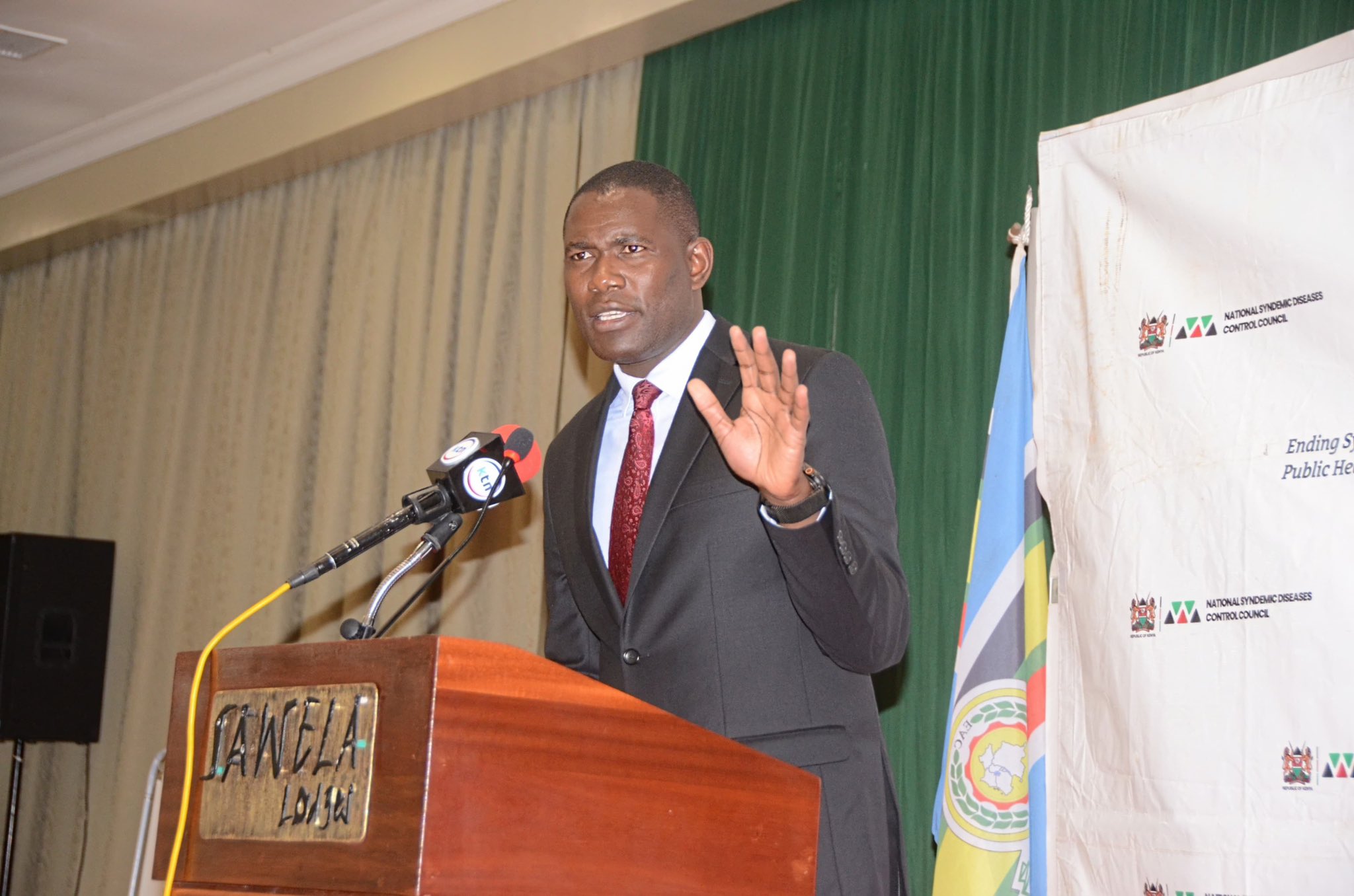MoH flags surge in youth HIV infections, calls for stronger prevention strategies

Medical Services Principal Secretary Dr Ouma Oluga says nearly 6,000 new infections had been recorded among individuals aged 15 to 24.
The Ministry of Health (MoH) has raised concerns over the increasing number of HIV infections among young people, calling on county governments to integrate prevention strategies into their existing healthcare services.
Speaking during the opening of the Joint Annual Program Review Workshop on the Syndemic Strategic Framework in Naivasha, Medical Services Principal Secretary Dr Ouma Oluga said nearly 6,000 new infections had been recorded among individuals aged 15 to 24.
More To Read
- Over 2,000 people denied SHA services daily due to ID, phone mismatch - PS Oluga
- HIV is on the rise among older Africans, but care and research overlook this group – lessons from Kenya, South Africa
- Unmasking hepatitis: The five types, their causes and treatment
- PS Oluga warns of health facilities faking staff, equipment to obtain licenses
- Kenya records landmark milestones in fight against HIV, malaria, TB and sleeping sickness
- Parental consent blocking teen girls from health services – report
Dr Oluga described the trend as deeply troubling and attributed it to gaps in education and enforcement of preventive measures.
He said the high number of new cases signals serious gaps in both education and enforcement, which must be addressed through sustainable and coordinated interventions.
"We have issues of prevention that we want counties to now start integrating into their healthcare services,” said Dr Oluga.
He stressed that countries must make HIV prevention a standard part of health service delivery rather than treating it as a separate or occasional effort.
MoH, he said, has already established a coordinated prevention mechanism that includes surveillance officers and community health promoters working at the county level.
“We are working to consolidate efforts and ensure our interventions are both sustainable and resilient going forward,” he noted.
Dr Oluga warned that without long-term, integrated strategies, efforts to reduce HIV transmission, especially among adolescents and young adults, will continue to fall short.
He also noted that recent changes in the health sector’s funding landscape have required a reorganisation of resources for tackling syndemic diseases such as HIV, tuberculosis, and malaria.
Top Stories Today













































